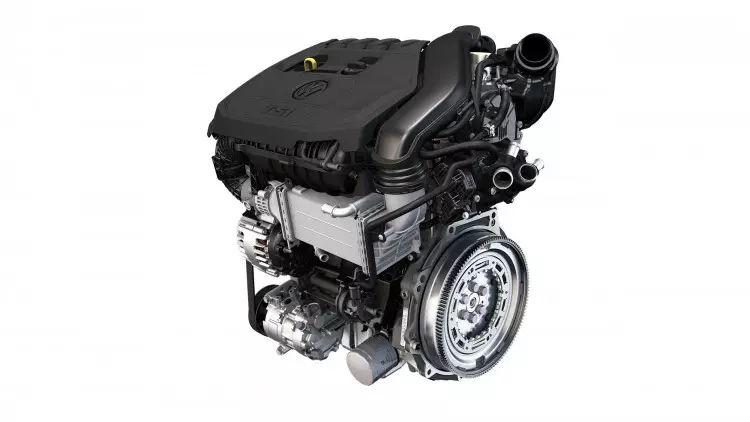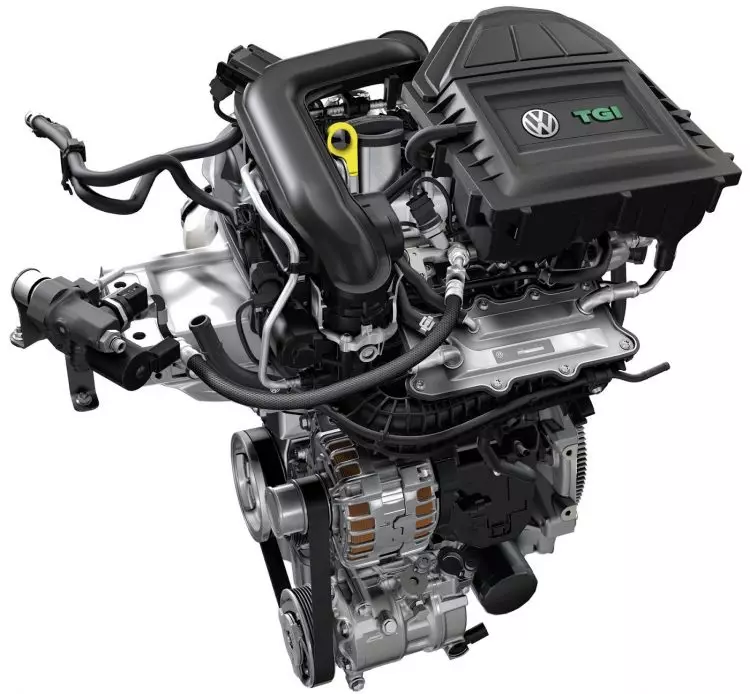The Vienna International Engine Symposium was the stage chosen by Volkswagen for its latest technological innovations.
This year, Volkswagen brought to Vienna a series of technologies focused on saving fuel and reducing emissions. Among the various solutions presented, we highlight the partial and total electrification of the powertrain – the big trend for the coming years – as well as the presentation of a new natural gas engine.Stop the engine while running to save fuel
Among the novelties, the biggest highlight was the presentation of a micro-hybrid system associated with the EA211 TSI Evo engine. This system allows adding a function called Coasting-Engine Off. Basically, this function allows the internal combustion engine to shut down in motion when we decelerate.

As you know, to maintain a certain speed it is not always necessary to use the accelerator – on flat roads or on descents. The old "trick" of taking your foot off the accelerator and putting the transmission in neutral to save fuel will now be done automatically by the engine itself. According to the brand, this can mean savings of up to 0.4 l/100 km . The system remains active up to speeds of 130 km/h.
SPECIAL: Volvo is known for building safe cars. Why?
The system consists of the 1.5 TSI Evo engine, the DQ200 DSG dual-clutch gearbox and a lithium-ion battery. The presence of one more battery serves the purpose of continuing to supply energy to the systems present in the car – electric steering, air conditioning, lighting, etc. - while the engine is off.This system turns out to be low cost, as it is based on the 12 volt electrical system that already equips the car. 48-volt systems, combined with semi-hybrids, allow for more advanced functions, but they also entail higher costs. The availability of this micro-hybrid system will happen this summer, with the beginning of marketing of the Volkswagen Golf TSI Bluemotion.
CNG, alternative fuel
The other novelty presented at the Symposium refers to the three-cylinder 1.0 TGI engine with 90 hp prepared to run on both gasoline and CNG (Compressed Natural Gas). Let's leave the floor to Wolfgang Demmelbauer-Ebner, the director of gasoline engine development at Volkswagen:
Due to its chemical composition, natural gas as a fuel, even from fossil sources, already reduces CO emissions. two . If, however, it is produced in a sustainable way, such as biomethane derived from agricultural waste, when looked at from a life cycle perspective, it allows for a form of mobility that produces much less CO two.
One of the main factors during its development was the treatment given to methane in the exhaust system. In order to reduce emissions, even when cold, the brand has created a system that allows you to quickly bring the catalytic converter not only to its ideal operating temperature, but also to keep it at that point.

For this to happen, when under low load or while the engine has not yet reached its normal operating temperature, two of the three cylinders run on a rich air-fuel mixture and the third on a lean mixture. One of the important components of this technology is the lambda probe , which reaches its optimum temperature, electrically, in just 10 seconds.
This thruster will be debuted on the new Volkswagen Polo, which will be seen at the Frankfurt show, which takes place in September. For the rest, Volkswagen took the updated e-Golf to the Vienna International Motor Symposium, a model that presents renewed arguments in terms of autonomy.
